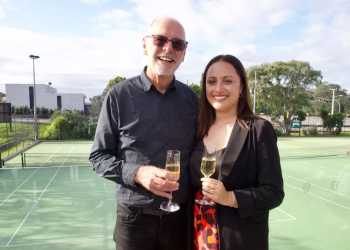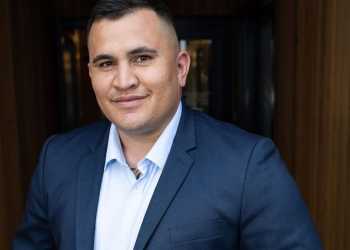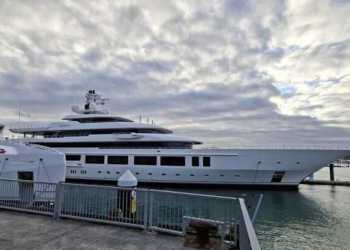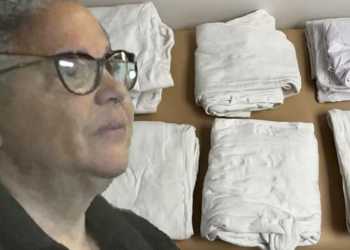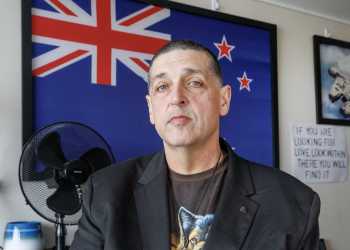A week after the 2019 terror attack on two Christchurch mosques, Imam Gamal Fouda addressed the crowd gathered in Hagley Park.
“This terrorist sought to tear our nation apart with an evil ideology that has torn the world apart,” he said, the Al Noor mosque (also known as Masjid An-Nur), where dozens of his worshippers were murdered, behind him.
“But instead, we have shown that New Zealand is unbreakable, and that the world can see in us an example of love and unity.”
Fouda, and Linwood Islamic Centre Imam Lateef Alabi, say love and unity will be a theme of their public messages this week – the first March 15 commemoration to fall on a Friday since 2019, which also happens to coincide with the Muslim holy month of Ramadan.
In private, the imams will raise concerns about Government proposals – particularly an overhaul of firearms laws – in meetings with Prime Minister Christopher Luxon tomorrow.
Six days after the attack – the day before Fouda spoke in Hagley Park – Jacinda Ardern’s Government announced it would ban military-style semi-automatics and assault rifles.
Now, with the change of government, National and the Act Party have agreed to re-write the Arms Act, including the possibility of allowing competitive sports shooters access to semi-automatics.
“The discussion around firearms, it’s alarming for us and for myself personally,” Fouda tells Newsroom ahead the mosque management’s meeting with Luxon.
“There’s much better ways of doing this.”
The Muslim community is still recovering from the attacks, Fouda says, and they’re frightened at the prospect of semi-automatic rifles becoming more available.
Associate Justice Minister Nicole McKee, of the Act Party, entered politics with the intention of shaking up gun laws, and rolling back what she called “rushed” and “knee-jerk” legislation.
Fouda says the firearms laws were changed after the attack to protect everyone, not just the Muslim community.
“We would like to see this continuing … and these horrible firearms not falling in the wrong hands. We want to make sure that this will be very strictly managed.
“We don’t want this to happen to anyone again.”
Another issue for Fouda is the Government’s lack of consultation.
“We didn’t get any information about it – it just came from the media that the firearms are coming back.”
It will be his first time meeting Luxon, whom he invited to the mosque during the election campaign.
Alabi, of Linwood Islamic Centre, says Luxon will meet family members of the shuhada (martyrs) and victims of the shooting. The imam says changes to firearms laws are a concern but he has faith the Government will be responsible.
“It must be managed in the proper way,” he says, with gun buyers being properly monitored. “We don’t want to end up becoming another America.”
Alabi thinks meeting Christchurch’s Muslim community will engender empathy, or sympathy, from the Prime Minister.
“He will do the right thing. Because definitely you can’t tell the Government what to do. But by mixing around with people, you get to know exactly what they need. So I believe by meeting us, speaking to us, he will know what we need, and he will put it in place.”
A spokesperson for Luxon says: “The Prime Minister’s meetings on Tuesday are private and any conversations about the issues you mention will be raised directly with the participants. We can confirm the Prime Minister will again be in Christchurch on Friday.”
This past month, Luxon said his Government was going through the 44 recommendations of the Terror Attacks Royal Commission, “making sure that we can get to a hard completion on each of them, one way or another”.
A Department of Prime Minister and Cabinet briefing to Judith Collins, the minister overseeing progress on the commission’s recommendations, raised the prospect of “integrating the response into business-as-usual activities”.
This past Friday afternoon, most worshippers had left Masjid An-Nur after Jumu’ah prayers. Shoes sit, idly, in the entrance, below the video doorbell. Surveillance cameras pointing in multiple directions are monitored on screens, inside.
Sitting at the table in the management and imam’s office, Fouda says his community is at different stages of recovery from the attack. Having March 15 fall on a Friday will retraumatise many – “and myself as well”.
“I wanted to pray in Hagley Park to give a chance to all the friends who are not praying to participate. But the families, they had a strong opinion on praying in the mosque, which I supported and changed the plan.”
Reflecting on that terrible day, almost five years ago, he says people generally sat in the same area of the mosque on Fridays.
“Now, all of a sudden, I look and I see different people sitting in the same place, and you remember those people.
“15th of March is an important day for me, and for the community, and for New Zealand. It has actually changed us forever, and left a scar on our heart, and changed people’s lives, particularly the young people.”
The community still needs help, Fouda says, and the mosque’s management will appeal to the Government to continue its support for the widows, the injured and the community. He will ask Luxon if funding for some support programmes will expire in June.
Muslims still face hateful messages and regular abuse, he says, and there’s a question mark over whether agencies are doing enough to educate the public about, and promote, diversity and social inclusion.
Given heightened tensions around the world, and the increase of hate being spread, especially online, New Zealand’s leaders need to send messages of peace, he says.

Linwood Islamic Centre occupies a temporary mosque on Tuam St, after the demolition of its building on Linwood Ave, where seven people were murdered in 2019. Like Al Noor, the temporary mosque is peppered with surveillance cameras.
Alabi, the imam, says the weight of what he calls “the incident” is reducing – although the uncertainty about construction of a new mosque in Linwood Ave is adding to the stress of his worshippers.
“Each year that comes takes me back to that incident.
“It’s a time of sadness, in a way, but at the same time, I still feel good that at least things are getting better within the Muslim community, and slowly, slowly, the families and the victims, and the whole Christchurch Muslim community, even non-Muslims, we are healing slowly.”
He estimated 85-90 percent of his members are doing well, but it’s particularly hard for those whose businesses have suffered, or been sold.
The government has supported the Muslim community, and New Zealanders in general, since the attack, and he commends the police – “God bless them” – the Ministry for Ethnic Communities, Department of Internal Affairs, Christchurch City Council, and the Department of Prime Minister and Cabinet.
Alabi sees no difference between governments – “neither the outgoing one nor the new one”. “They’re all New Zealanders – I believe New Zealanders have the same heart.”
The community has had a lot of government support, he says, so there’s not much the new Government needs to add. “The only thing I can recommend is that the Government should still continue to establish inclusivity, to include the Muslims.”
As for the terrorist, serving a life sentence, without parole, in Auckland Prison: “I don’t think about him at all.”
Alabi hopes the Australian man will repent, known as taubah or tawbah in Arabic. “If you sincerely repent, according to our belief, he will be with me in paradise.”
Both imams say there are unanswered questions about what happened on the day of the attack.
The coroner’s inquest has wrapped up its first phase about the emergency response, and is still to consider other issues, such as firearms licensing by police, and whether the terrorist’s online activity radicalised him.
‘Just sit with us’
Fouda, of An-Nur, hasn’t thought about what he’ll say this Friday.
“But it is just the message of unity and continue working together and spreading the message of togetherness as New Zealanders working together to protect our country from any hate and spreading the message of love and unity. That is my message.”
Alabi, too, hasn’t turned his mind to Friday’s message. “Something will come.”
Life is short, he muses, and everybody should be able to enjoy it.
“By God’s grace, there is nothing except peace, except peace, salaam, salaam. That’s it.”
And if non-Muslims want to show their support?
Alabi says people might not be able to find the right words – so “just sit with us” on Friday.
“Sit with us, come visit, place flowers. It’s more than enough.”
Fouda’s hoping there will be a screen erected in Hagley Park so the public can watch Friday prayers at An-Nur. People will be welcome inside afterwards, he says.
“We’ll meet them, and be available here, and meet anyone who wants to come and show support.”
He reiterates his thanks to the wider community. “As New Zealanders, together, we stood against hate.”
Five years after the Christchurch terror attack that killed 51 people, and injured dozens more, the community is healing, and love and unity are still to the fore.



